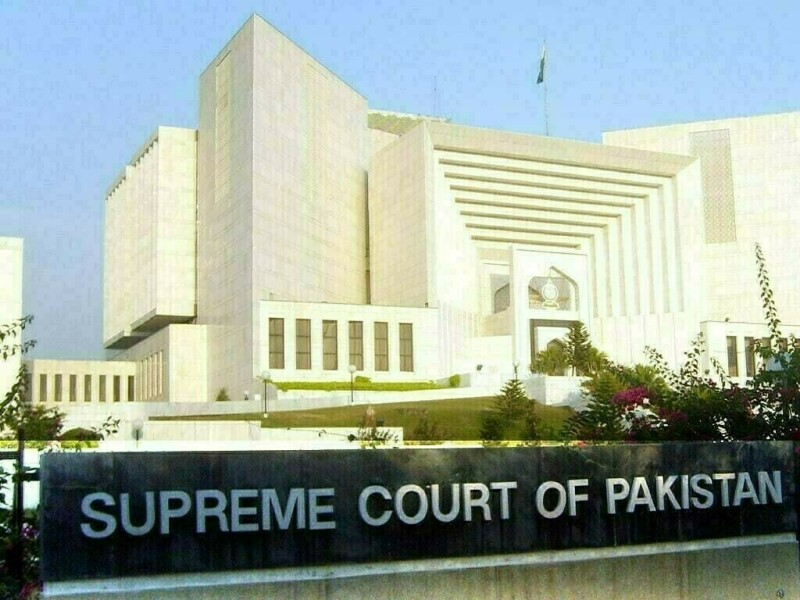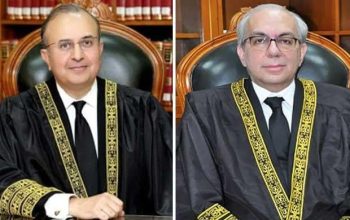The Supreme Court (SC) said on Monday that the Election Commission of Pakistan’s (ECP) numerous “unlawful acts and omissions” had “caused confusion and prejudice to Pakistan Tehreek-e-Insaf (PTI)”.
The 70-page judgement on the reserved seats case was released today on the SC website. It is authored by Justice Mansoor Ali Shah, who is set to succeed incumbent CJP Isa as the top judge in October.
On July 12, the SC had declared PTI eligible for seats reserved for women and minorities.
The 8-5 majority July order said that withdrawal of election symbol cannot disqualify a political party from elections.
“The PTI was and is a political party,” the court said.
The judgment further said that the withdrawal of an election symbol cannot disqualify a political party from participating in the elections.
In its detailed order issued today, the SC said that the judiciary’s role in ensuring electoral integrity and upholding the will of the people is essential for sustaining public trust in the democratic process.
SC also observed that the returning officers (ROs) and the ECP’s numerous “unlawful acts and omissions” caused “confusion and prejudice to PTI, its candidates, and the electorate who voted for PTI”.
ECP decides to implement Supreme Court’s order in reserved seats case
“PTI’s nominated candidates were wrongly shown independent candidates in the list of contesting candidates (Form 33) by the returning officers and were also wrongly notified as independent returned candidates in the Section-98 notification by the Commission,” the judgment read.
It further said that ECP “in its role as a guarantor institution and impartial steward, is tasked with ensuring the transparency and fairness of elections to maintain public trust in the electoral system”.
“This is essential for the legitimacy of elected representatives and the stability of the political system. The Commission must uphold democratic principles and the integrity of electoral processes by ensuring that elections truly reflect the will of the people, thereby preserving the democratic fabric of the nation,” it added.
“Unfortunately, the circumstances of the present case indicate that the Commission has failed to fulfill this role in the general elections of 2024,” the apex court observed.
Read the full story at the Business Recorder - Latest News website.



